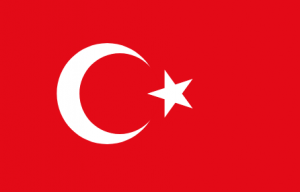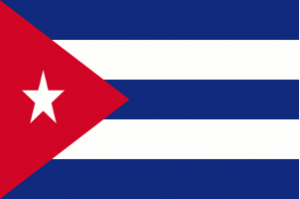May 26, 2023
Dear Friends,
CANVAS is delighted to bring you another issue of our weekly report!
Russia’s Wagner Group claims to have captured Bakhmut in eastern Ukraine, but Kyiv says it intends to recapture the ruined city after surrounding it. The battle for Bakhmut has increasingly been the focal point of the war as armies have clashed there for months. Some 20,000 troops from Russia’s Wagner mercenary group were killed in the months-long battle for control of Bakhmut in eastern Ukraine, its founder Yevgeny Prigozhin said.
Thousands of people demonstrated in northern Ethiopia’s Tigray region to demand the return of people displaced by a two-year war there and the withdrawal of outside forces now that the conflict has ended. The war forced millions from their homes, including hundreds of thousands from land disputed by Tigray and Amhara. Thousands of demonstrators peacefully rallied in several major cities holding signs with slogans like “invaders must leave our homeland”.

The third protest by ‘Serbia Against Violence’ was held in Belgrade and gathered tens of thousands of people making the protest the largest seen in Serbia in the past decade. Citizens say that the deaths that occurred in early May are the consequence of ‘violence that is visible everywhere’, and Serbian officials have been held responsible for the relativization and promotion of domestic violence through reality shows aired on TV in prime time, including convicted criminals who often appear on the channels with national frequency. The Serbian opposition, university professors, and prominent Serbian actors have supported the protests, but these protests are solely citizens’ initiatives. Officials organized the counter-protest in Pančevo. Furthermore, officials led by President Vučić are accusing the opposition of organizing protests against the Serbian leadership. A pro-government rally was organized this Friday in Belgrade. Authorities organized this rally in response to the protests that have been happening over the last few weeks, which is why this gathering today is seen as a counter-rally and reaction to mass protests against violence that happened a week ago. During the event, Vučić announced that he is stepping down from the helm of his party and will be forming a new movement in June.
This Friday, before noon, Kosovan authorities had perpetuated an action in which they attempted to access the municipal buildings. Local Serbs, who gathered in front of the municipal building in Zvečani after hearing sirens that are used to inform the majority of Serbs in north Kosovo when there is trouble, clashed with the Kosovan police. The US ambassador to Kosovo condemned an ongoing action by Kosovan authorities and urged for halting this situation
Representatives of farmers and agricultural producers met with Serbian government officials in Belgrade, where they decided to accept the offer of the government and thus stop 5 days-long blockades, even though the offer does not fulfill half of the farmers’ demands. Since only 3 farmers’ associations agreed to the offer, and 4 remained silent, it is still unclear how the situation will develop.

The Secretary-General of the Norwegian Refugee Council announced that the Taliban have agreed to consider resuming work for Afghan women at NGOs in the southern province of Kandahar. Last December, the Taliban indefinitely suspended Afghan women from working for NGOs, alleging that the women were not correctly wearing the hijab or adhering to laws on gender segregation. Two rights groups, Amnesty International and the International Commission for Jurists, have condemned the attack on Afghan women’s rights and called on the International Criminal Court to hold the Taliban account for gender persecution as a crime against humanity.

Iran executed three men who were facing drug charges by hanging them last weekend. Iran appointed Ali Akbar Ahmadian as the new top security official, this week. Critics believe that this change reflects the conservative influence of the Iranian establishment and that it might change the state’s main pillars of foreign policy. Meanwhile, the Israeli national security chief claimed that the new nuclear facility built by Teheran will not be immune from potential attacks. Iran responded by stating that its weapons have the potential to reach both Israeli and the US bases in the region and successfully test-launched the newest ballistic missile with a 2000 km range potential.

On Wednesday, a Beirut court confiscated the French and Lebanese passports of Riad Salameh, the chief governor of Lebanon’s central bank, after Interpol put a red notice against him, an alert issued for international fugitives. Salameh and his associates have been accused of embezzling and laundering millions of dollars from Lebanon’s central bank. After failing to appear at an investigation hearing for European prosecutors, France issued a warrant for Salameh’s arrest last week.
Meanwhile, a prominent exiled Egyptian human rights activist, Abdul-Rahman Tarek, was arrested on Wednesday by Lebanese police without a warrant. There was not a clear reason for the arrest, and Tarek was released later that day. Lebanese rights activists planned a protest but called it off after Tarek’s release.

Turkey’s ultranationalist Victory party gave split endorsements to the remaining candidates for president, Kemal Kılıçdaroğlu and Recep Tayyip Erdogan. Sinan Ogan, who finished third in the general election, directed his voter base to support President Erdogan. Meanwhile, Ümit Özdağ, the leader of the Victory party to which Ogan belongs, broke party ranks to formally back Kılıçdaroğlu. Özdağ described reaching a consensus with the opposition leader on deporting all refugees residing in Turkey within a year, along with not reinstating democratically-elected Kurdish mayors in the southeast who were removed by authorities.
Additionally, the country’s central bank announced that the current policy rate of 8.5% will remain. This is part of a broader effort to keep the lira, which has lost 6% of its value against the dollar in 2023, stable ahead of the runoff election. At the same time, Cenbank’s net forex reserves fell into negative territory, marking the first time this has occurred in over two decades.

Another week-long ceasefire was attempted to allow humanitarian aid into Sudan this week, but it failed to hold with both sides accusing each other of violations. The fighting “lulled” on Tuesday, but air strikes and clashes on the ground returned to bombardment Wednesday morning. The fighting that started over a month ago between the army and RSF has destabilized the country and raised concern for neighboring nations. Throughout conflict negotiation attempts, African Union diplomats have had a minimized role compared to the presence of US diplomats.

Around 800 prisoners were released through a presidential amnesty to reduce overcrowding in jails, especially benefiting prisoners over 60 years old and juveniles. Offenders with a violent record who have served three-quarters of their sentence were also released. Additionally, Zimbabwe dollar inflation has caused an upward trend in purchases by domestic consumers from street vendors. These transactions exclusively utilize the U.S. dollar leading to a decline in sales for brick-and-mortar stores and a subsequent uptick in informal sector employment.

A recent publication of a late Jesuit priest’s diary revealed multiple accounts of child abuse, sparking a movement of around 200 individuals also coming forward with complaints. The attorney general is currently proposing an investigation to determine if church officials are liable. Additionally, the Bolivian government is beginning to instate background checks for visiting religious officials. In response to this development, Pope Francis sent Monsignor Jordi Bertomeu to Bolivia, a sex crime investigator for the church, and leaders of the Roman Catholic Church in Bolivia acknowledged that the church has historically been deaf to the suffering of victims of sexual abuse.

Cuba’s economy minister said there is no quick fix for the country’s sputtering economy, as inflation, fuel shortages, plunging farm production, and a cash crunch drag on output and continue to fan discontent. Economy Minister Alejandro Gil said there was too little foreign currency on the island to pay for coveted fuel, food, and farm imports, meaning Cuba would increasingly scrape by with what it can produce at home. Meanwhile, The European Union’s top diplomat said in Havana that the EU remains Cuba’s top trade partner, and one committed to “mutual respect” despite U.S. sanctions and the country’s increasing overtures towards Russia.

Florida Governor Ron DeSantis announced his campaign in a glitch-ridden collaboration with Twitter and Elon Musk. In his time as governor, DeSantis has risen to national prominence as a staunch “anti-woke” proponent of conservative ideals. Though he trails Donald Trump in the polls, DeSantis presents himself as the electable alternative, after winning re-election comfortably in the 2022 midterm elections while a decisive Red Wave otherwise failed to materialize. His launch came days after Tim Scott – the only Black Republican in the Senate, hailing from South Carolina – formally declared his candidacy. Scott kicked off the campaign on the campus of Charleston Southern University, his alma mater, focusing on his Christian faith and optimistic political nature.

Chinese state media called the G7 an ‘anti-China workshop’ as a response to China-related statements made during the meeting. By underlying Taiwan matter, human rights abuses, nuclear arms, economic coercion, and tension China creates in the East and South China Sea, G7 triggered a fierce reaction from China whose officials summoned the Japanese ambassador to protest against the hype over China-related concerns. Furthermore, as G7 members tightened sanctions on Russia and called on China to put more pressure on Russia regarding the Ukrainian War, Russian and Chinese officials met and signed a series of agreements on infrastructure and trade. According to China and Russia, all of these agreements are the outcome of unprecedentedly high bilateral relations.
In the meantime, the Chinese foreign ministry called on the US to show more understanding for China in order to “get their bilateral relations on the right track”. In light of these events, the new Chinese ambassador to the US arrived in New York with the aim to foster collaboration and increase dialogue between China and US. Simultaneously, a Chinese state-sponsored hacker group has been accused of spying on numerous critical infrastructure organizations in the US.

United Kingdom Foreign Minister James Cleverly revealed that he raised the case of jailed Hong Kong media tycoon Jimmy Lai with senior politicians in China and Hong Kong, as the UK again criticized Beijing’s crackdown on freedoms in the one-time British colony. Hong Kong authorities denounced the report that claimed the Beijing-imposed national security law was being used to punish, “silence,” and “discredit” pro-democracy opposition leaders in Hong Kong, many of whom are jailed or forced into exile. The report called on Hong Kong to follow the UN Human Rights Council’s recommendation to remove the law. In response, Hong Kong authorities strongly disapproved of the report, calling it a political attack. A Hong Kong government spokesman said Britain should stop interfering in its former colony’s affairs.

Iranian President Raisi met with President Widodo to discuss strengthening ties via a signed Preferential Trade Agreement. The agreement outlines increasing Indonesian exports to the Middle East in hopes of increasing bilateral trade to $20 billion. This would cause Indonesia to gravitate away from traditional trading partners in Southeast Asia and consequently align the two predominantly Muslim nations. President Raisi’s appearance occurred after increasing tensions between the West and Iran, due to Iran’s recent crackdown on protests regarding the death of a woman in police custody.

Myanmar’s military-controlled media said on Friday 145 people were killed when Cyclone Mocha hit the country this week, including 117 members of the Muslim Rohingya minority, in stark contrast to reports from rights groups and residents who fear hundreds may have died. The cyclone tore down houses, communication towers, and bridges, and the damage raises concern about whether the urgent needs for shelter, food, drinking water, and medical assistance can be met. Furthermore, UN staff say they have not been given permission to help thousands of Rohingya living in displacement camps in Myanmar who are in urgent need of assistance.

Thailand’s progressive Move Forward Party has signed a coalition agreement with seven other parties, promising to draft a new constitution, end monopolies, and allow same-sex marriage, but the deal made no mention of a controversial proposal to revise royal insult laws. That proposal had been part of Move Forward’s campaign platform, and many younger Thais would like to see it considered along with other democratic reforms. However, the monarchy is considered a pillar of Thai national identity and conservatives oppose any changes to the law, which provides for penalties of up to 15 years in prison. The 23-point agreement outlined the coalition’s policy plans and priorities as it seeks support among legislators to form a government after nine years of conservative, military-backed rule.

Russia moved ahead with a plan to deploy tactical nuclear weapons in Belarus, whose leader said the warheads were already on the move, in the Kremlin’s first deployment of such bombs outside Russia since the fall of the Soviet Union. When Russian President Vladimir Putin announced the deployment earlier this year, the move was widely seen as a warning to the West as it stepped up military support for Ukraine.
Roman Protasevich, a Belarusian opposition blogger arrested in 2021 after his flight was grounded in Minsk, has been pardoned. The 28-year-old was sentenced to eight years in prison for offenses including inciting “terrorism”, organizing mass disturbances, and slandering Belarusian President Alexander Lukashenko. Meanwhile, Nobel Peace Prize laureate Ales Bialiatski has been transferred to a notoriously brutal prison in Belarus and hasn’t been heard from in a month, according to his wife. Bialiatski has been kept in an information blackout since his transfer to the N9 colony, where inmates are beaten and subjected to hard labor.

The first direct flight from Russia to Georgia arrived to protests after the announcement of Russia lifting the flight ban last week. Georgia’s national airline, Georgian Airways, banned the country’s president from their flights in response to allowing these flights. More than 100 organizations within Georgia have said this sabotages the country’s aspirations to join the EU, which the public overwhelmingly supports.